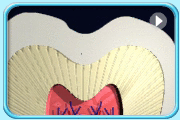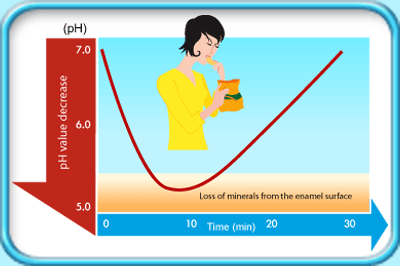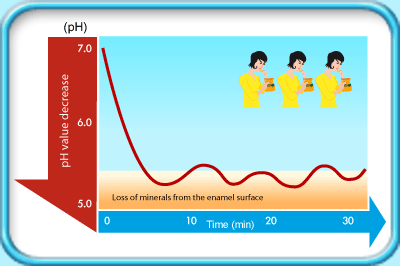Many people have a misconception that if they can thoroughly brush their teeth clean, they can avoid having tooth decay. In fact, besides brushing teeth thoroughly, a good dietary habit also plays an important role in tooth decay prevention.
All food that contains sugar can be metabolised by the bacteria in the plaque located on the tooth surfaces to produce acid. The acid will then lead to loss of minerals from the tooth surfaces, causing tooth decay.

Most of the food and drinks available in the market contain sugar which will increase the risk of getting tooth decay.
As soon as we eat or drink, the bacteria in the plaque will metabolise the sugar and produce acid. The acid will then lead to loss of minerals from the tooth surfaces. Chances of getting tooth decay will be reduced by allowing sufficient time in between meals for the saliva to neutralise the acid and redeposit minerals onto the tooth surfaces.

If having snacks frequently, there will be continuous production of acid and insufficient time for the saliva to neutralize the acid. This will result in persistent acidic environment in the mouth, which favours the development of tooth decay.

Therefore, even a small piece of biscuit or a sip of beverage is considered one snack, which will bring one more chance of getting tooth decay.